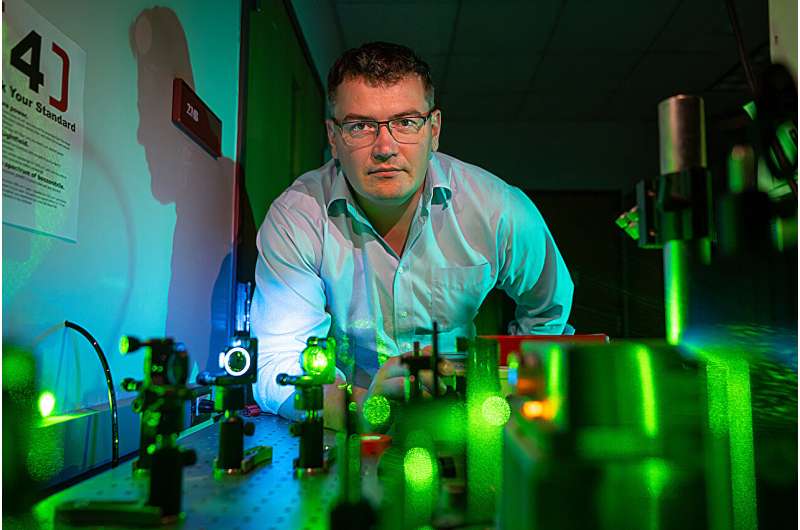Using a light-based device, researchers demonstrated that diet, biological age, sex and select nutrient deficiencies could be detected through the skin of live animal models with up to 90% accuracy. The findings, published in Analytical Chemistry, signal a breakthrough in noninvasive health monitoring, including the potential for wearable sensors to provide real-time nutritional and metabolic information.
The researchers believe the technology could help monitor for emerging health concerns and advance personalized dietary recommendations, a key focus of the Texas A&M AgriLife Institute for Advancing Health through Agriculture, IHA.
“Right now, dietary assessments mostly rely on self-reporting, which is often inaccurate,” said Dmitry Kurouski, Ph.D., IHA member and associate professor in the Texas A&M College of Agriculture and Life Sciences Department of Biochemistry and Biophysics. “But with this technology the size of a keychain, we can look directly at how diet changes the body and learn what is and isn’t working at the individual level.”

